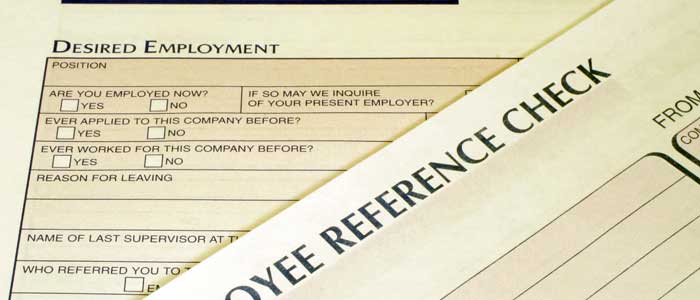Oct 28 2015 5 Takeaways from the Employment Background Check Lawsuit Against Amazon
 You have more data than ever… but you need to use it wisely.
You have more data than ever… but you need to use it wisely.
The employment background check is becoming increasingly central to the hiring process, but not without controversy. Amazon is currently embroiled in two separate lawsuits over background checks. The text of the lawsuits allege Amazon failed to meet the standards of the Fair Credit Reporting Act by failing to give applicants a copy of their credit report, but the motivations behind the suit are more complex and offer some important takeaways for HR teams and hiring managers.
Disclose, Disclose, Disclose
One of the ongoing themes in the Amazon lawsuits is that the process was opaque; the plaintiffs state Amazon never told them why they failed a background check, what their rights were when they had a background check, and never gave them a copy of the report or explained why they failed the process. While you should closely consult with legal counsel in murky waters like this, try to err on the side of clarity: Make sure your applicants understand what you’re doing, why they’re doing it, and what issues it might cause with their employment.
Run A Check On Your Employment Background Checks
One of the suits, Feldstein v. Amazon.com, states that an employee was listed as having several criminal convictions when, in fact, adjudication of those charges had been withheld and thus he was never convicted. While that may still be an applicant you don’t want, that kind of error is just as bad. Before contracting with any background check agency, ask for referrals and to run a sample check against a few current employees to spot possible issues.
Don’t Hire Until The Report Comes In
Another stand-out fact from Feldstein v. Amazon.com is that the plaintiff had been provisionally hired at his job before being dismissed because he’d failed a background check. Especially in high turnover industries, it’s tempting to get employees started immediately and assume the paperwork will come back clean: After all, let’s be honest, it usually does. But if you can avoid that, do so; it’ll limit problems and streamline your hiring process.
 A background check is a useful tool… that needs to be used judiciously.
A background check is a useful tool… that needs to be used judiciously.
Consider Different Levels Of Checks
Amazon wouldn’t be dealing with this right now if it hadn’t checked the credit report of its applicants. In true legal fashion, the facts of the case are about credit reports, but the truth is about other aspects of the check. And to be fair, Amazon has reason to check credit; theft from warehouses is a multi-billion dollar problem for shipping companies and online retail sites. But take the time to weigh out who needs a credit check, who needs a criminal records check, and who needs both, especially as the law may limit what checks you can run.
Look Beyond The Numbers
Background checks are useful tools that limit liability and help you find red flags. But for too many HR departments, they become a crutch; if so-and-so has any sort of problem, don’t hire them. The data is crucial to have and should be part of your hiring process, but so should the candidate themselves. If somebody made a mistake in high school, and that mistake was twenty years in the past … does it truly matter? Data is a good way to get to know if a candidate is right for you, but it’s just one cornerstone in a smart hiring process. Be smart with your background checks, and you’ll have the best candidates.
If you need an expert in background checks contact us. We’ll help you form a strategy that protects you and helps you find the best applicants the smart way.
![]()


